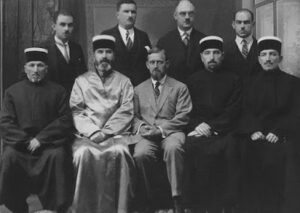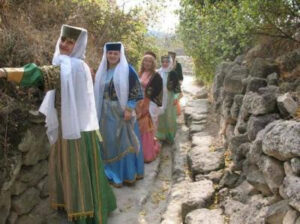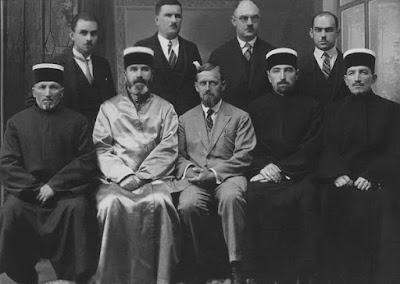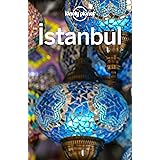Some of the Karaim Turks, who were subject to the Khazar State, entered the Karaim sect of Judaism.
The Khazars accepted Judaism in 740. Among the Khazars, Judaism was limited to the khan and his entourage, or mostly to the ruling and aristocratic group. Judaism was not limited to the Khazars among the Turks; In addition to the Caspian and Karaites, some Turkish tribes such as Kaliz, Kabar, and Kipchak also converted to the Jewish religion (Kuzgun, 1993: 194).
The Khazars, who converted to Judaism, used the Hebrew script, as we find examples of many Turks who converted to other religions. However, they preserved Turkish. History of Jewish colonies in Azerbaijan VII-X. stretches for centuries. The history of these Karaites, known as “Mountain Jews” in Azerbaijan, is probably related to the Khazar Empire (Güngör, 2002, C3: 279).
The Khazars, who first belonged to Shamanism, recognized Judaism in the 8th century with the arrival of the Byzantine Empire, persecuted Jews. However, the Khazar State preserved Judaism as an official religion until the end. So much so that, according to a rumor, the Khazar ruler, who heard that Muslim states demolished a synagogue, had a minaret in Itil destroyed in 922 (Togan:158; cited in January, 1983:61).
–————– Jewish Turks———-
• Karaim (Karaite) people

Ukraine, Poland
Native to Crimea, Lithuania, Poland
Ethnicity Crimean Karaites (2014)
Native speakers 80 (2014)
Language family
- Turkic
- Common Turkic
- Kipchak
- Kypchak–Cuman
- Karaim
Writing system: Cyrillic script, Latin script, Hebrew alphabet
Official status:
Recognized minority Language in
• Poland
• Ukraine
• Russia
The Karaim language is a Turkic language with Hebrew influences, in a similar manner to Yiddish or Judaeo-Spanish. It is spoken by only a few dozen Crimean Karaites (Qrimqaraylar) in Lithuania, Poland and Crimea and Galicia in Ukraine.
The three main dialects are those of Crimea, Trakai-Vilnius and Lutsk-Halych all of which are critically endangered. The Lithuanian dialect of Karaim is spoken mainly in the town of Trakai by a small community living there since the 14th century.
There is a chance the language will survive in Trakai as a result of official support and because of its appeal to tourists coming to the Trakai Island Castle, where Crimean Karaites are presented as the castle’s ancient defenders.
- Krymchaks. Ukraine

Crimean Karaites
Total population ≈2,500
• Ukraine (including Crimea) 1,196
• Crimea 715
• Israel ~500
• Poland 346
• Lithuania 241
• Russia 205
Languages
• Karaim, Crimean Tatar, Lithuanian, Polish, Russian
Religion
• Karaite Judaism, Christianity
Related ethnic groups: Karaite Jews, Krymchaks, Samaritans, Ashkenazi Jews, Sephardi Jews, Mizrahi Jews, Crimean Tatars, Turkic peoples
The Crimean Karaites or Krymkaraylar, also known as Karaims and Qarays, are an ethnicity derived from Turkic-speaking adherents of Karaite Judaism in Central and Eastern Europe, especially in the territory of the former Russian Empire. “Karaim” is a Russian, Ukrainian, Belarusian, Polish and Lithuanian name for the community.
Turkic-speaking Karaite Jews (in the Crimean Tatar language, Qaraylar) have lived in Crimea for centuries. Their origin is a matter of great controversy. Most modern scientists regard them as descendants of Karaite Jews who settled in Crimea and adopted a Kypchak language. Others view them as descendants of Khazar or Cuman, Kipchak converts to Karaite Judaism. Today, many Crimean Karaites reject ethnic Semitic origins theories and identify as descendants of the Khazars.






















